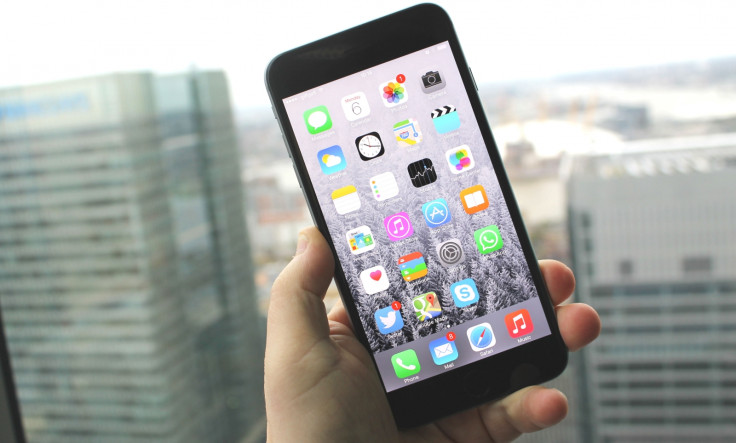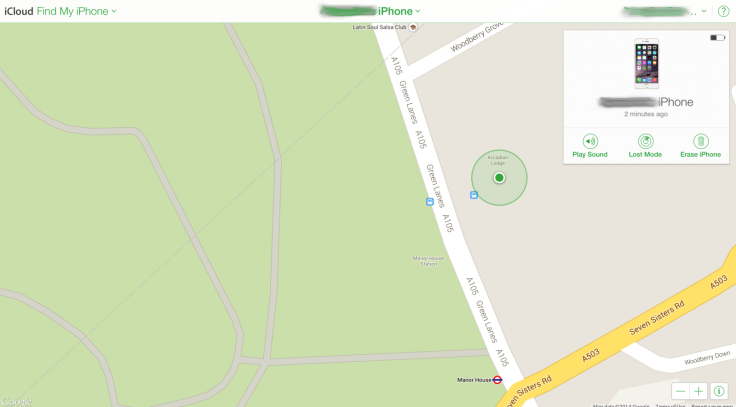Find My iPhone Didn't Help Me Recover a Stolen Laptop and Smartphone

Earlier this week I read a piece by Sam Sheffer on The Verge entitled "I caught the thief who stole my iPhone" which details how he used the Find my iPhone feature on his iPhone 6 Plus to track the person who had stolen his phone.
In the article Sheffer says: "Find My iPhone works when used properly".
I beg to differ - twice.
Find My Mac
The first incident happened in June. I finished playing football on a wet Thursday evening to find multiple missed calls and messages from my wife. We had been burgled and she had come home to find the house ransacked.
Having rushed home across London I found that among the items stolen were two laptops - both of which were Apple MacBooks.
I didn't remember straight away, but a couple of hours later as I was talking to the police I realised that I had the Find my Mac feature activated on my MacBook Air and my wife had it activated on her MacBook Pro.
I logged on to iCloud.com from my phone to see if either laptop was online, but neither was.
The following day I tried again, and there it was. A little green dot pinging back the location of my wife's laptop. I called the police and told them I had located the laptop, confident that I would soon be reunited with my stolen goods.
Sadly this was not the case. Despite watching online for the following week as the laptop remained online, we never got the items back.
How Find my iPhone works
While it's called Find my iPhone, the feature works across Apple's Mac computers, iPads, iPhones and iPod touch products.
Once enabled on your device it allows you to track it remotely from Apple's iCloud.com website. As well as showing you if the device is online, it will show you where it is on the map. If it is offline, it will tell you when it was last online.
From the website you can make your stolen device play a sound, lock the device and leave a message which will be displayed to whoever has stolen the product. You can also remotely wipe the device to protect your personal information.
The problem? The police said they were unwilling to go into the block of flats which the laptop was pinging back from. It was so frustrating. I knew where the laptop was (it was just 10 miles away in Enfield, north London) but there was nothing I could do about it.
I told the police they could make the laptop play a sound to try and locate it, but they said their hands were tied and they couldn't even go into the block of flats.
Eventually the laptop stopped pinging back its location.
We locked both laptops and left messages to the thieves telling them what we though about them. So, while Find my Mac worked, it didn't help get our laptops back.
iPhone 6
Fast forward a few months and as well as welcoming a new baby boy into our lives, my wife had also become the proud owner of an iPhone 6.
Despite our previous issues, one of the first things she did was download and enable Find my iPhone.
Two weeks after getting the new phone, she was out walking our son and while in the process of transferring him from her arms to the pram, some scumbag used the opportunity to slide his hand into her jacket pocket and steal the phone.
She contacted me at work from our home's landline (I think the only time we've ever needed this) and I immediately logged into her iCloud account online.

There it was, just a few hundred yards from our house. The phone was still on, but ringing out. I rang the police immediately and told them what had happened and that I knew where it had been taken.
I knew the building. It was a half-way house next to Manor House underground station that I passed every single day, on the way to and from work.
The policeman I spoke to said they were sending someone to the building immediately. Despite the previous issues we'd had, I was confident this time they would recover the phone.
I told them again about the ability to play a sound to help locate the phone within the building and they even took my wife's iCloud login details so they could track it.
As you may have guessed by now, we never got the iPhone back. The police said they would not go into the building and obviously my wife was not going to go into the building herself.
By that evening the phone had moved, but was still online in a block of flats near Edgeware Road underground station. Again we told the police. Again they said they were sending someone to investigate. Again nothing happened.
We ended up locking the phone and putting another angry message to those who had stolen it but knew it was a futile exercise
Disconnect
So, as you can see, Apple's location service may work in a very limited set of circumstances (where you can track the device in real time immediately after it is stolen) but in most situations it only serves to increase your anger at getting robbed or burgled.
Sitting at a computer and seeing that green dot pinging back at you and knowing there is nothing you can do about it is extremely frustrating.
The problem is not with Apple's technology. That works. The problem is that it just doesn't help when it comes to actually getting your stolen items back.
There is a disconnect between how Apple's technology works and how London's Metropolitan Police works. Of course you could take matters into your own hands and go and knock on doors to try and get your stolen items back, but not only is that not safe, it misses the point that the police are meant to be there to help you in these situations.
As technology advances and the devices we carry around with us become more and more expensive, it is vital that the authorities begin to use the technology to their advantage and rely on it to give them an edge on the criminals they are fighting against.
© Copyright IBTimes 2025. All rights reserved.






















